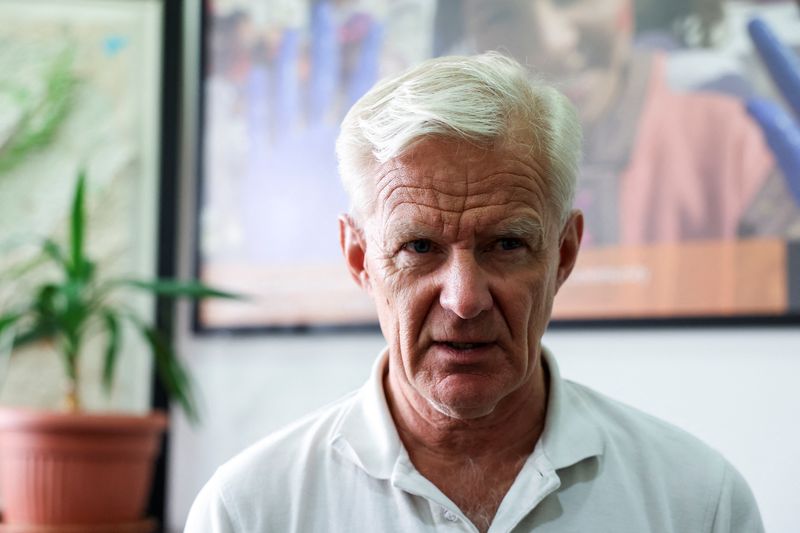By Charlotte Greenfield
ISLAMABAD (Reuters) – The head of a major aid organization said U.S. President Donald Trump’s order to suspend foreign aid for 90 days would have immediate and dire consequences in Afghanistan, where relief operations are already underway under severe strain.
Upon taking office Monday, Trump ordered a temporary pause in foreign development assistance pending assessments of effectiveness and consistency with his foreign policy.
The scope of the order was unclear, including whether it applied to Afghanistan’s humanitarian funding, which goes through NGOs and UN agencies.
Jan Egeland, secretary general of the Norwegian Refugee Council, told Reuters the move had rattled agencies as they prepared for further cuts from Afghanistan’s biggest donor.
“A suspension of all aid for 90 days, without new grants, without new transfers of funds, will have disastrous consequences immediately… for an already starving aid operation for girls, women and very poor and vulnerable civilians in Afghanistan,” he said. during a video interview from Kabul on Tuesday evening.
The war-torn country is home to more than 23 million people in need of humanitarian aid – more than half the country’s population – but aid has dwindled as donors face competing global crises and diplomats are concerned about the restrictions imposed by the Taliban on women in most areas of public life. , including education and health.
Development funding, which formed the backbone of public finances, was reduced after the Taliban seized power and the departure of foreign forces in 2021.
Reuters reported last year that non-governmental groups had played a critical role in filling the humanitarian void.
“If you go back in time, it was a well-funded operation, we received development aid, so maybe we could have lived through three months of suspension, we can’t take it anymore,” Egeland said .
Trump told a rally shortly before taking office that aid to Afghanistan would be conditioned on the recovery of billions of dollars of military equipment left behind by U.S. forces.
Egeland said he had raised the issue of women’s education with Taliban leaders during his four visits to Kabul since they took control of the country. During his last trip, he said he asked them to open schools and universities to all girls and women.
“You can’t not educate half your population,” he said.
The Taliban have also banned Afghan women from working in NGOs since 2022, reiterating this stance in a second announcement late last year.
Egeland said that in practice, his organization and others have managed to get around the restrictions.

But the lack of funding puts all this at risk.
“What is not understood in Western capitals is that recently, laying off female staff, laying off girls and women (beneficiaries) is not a Taliban ban… it is a reduction in help,” he said.

